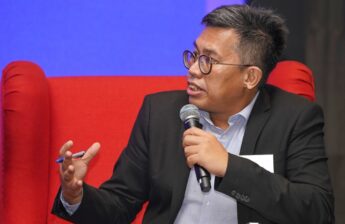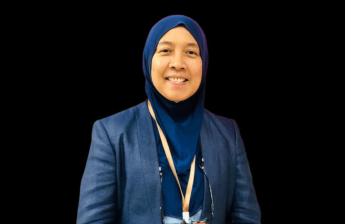When 2020 started, the world looked quite a bit different than it does today.
China had just identified the existence of a novel coronavirus which was spreading rapidly through Wuhan, a city of 11 million. A few months later, Covid-19 as the disease became known, was declared a global pandemic.
The last disease which had reached the level of a pandemic was H1N1 in 2009, which ended up infecting nearly a quarter of the world’s population.
Today, there are more than 2 million cases worldwide in 210 countries and territories. More than 500,000 have recovered from being infected. Around 133,000 people have died.
As a result of this public health emergency, many governments have imposed full or partial lockdowns onto their citizens. Malaysia itself is amidst the implementation of Phase 3 of a Movement Control Order (MCO), its version of a partial lockdown.
In recent days, as the authorities tighten restrictions and introduce enhanced measures intended to further limit movement and activity, the Malaysian public appears to be determined to support trading their liberties and those of others for some semblance of safety and security.
The hope is that by doing so the MCO would end soon and everything will go back to “normal”. People in other countries are making similar choices and compromises.
Unfortunately, Covid-19 will be with us for a long time to come. The MCO buys us time to prepare, manage and treat existing and new cases as they come at a pace which does not overwhelm our healthcare system. That is what is meant by flattening the curve.
However, trading human rights and dignity amidst a public health emergency, which has been securiticised, will have long lasting and often permanent consequences.
Hard-won lessons from the HIV pandemic affirm that successful public health responses are grounded firmly in human rights. Solidarity, empathy, and compassion reduces suffering, protects public health, and save lives.
While human rights law does allow for the limitation of rights for legitimate reasons, approaches which depend on broad punitive measures may undermine public health objectives while also violating human rights. They may actually do more harm than good.
There are three areas which we can do better in Malaysia.
The increasing criminalisation of measures intended to enforce the MCO, which has moved from warnings to compounds and now prosecution in court, should be viewed with serious concern.
Research and our own experience from other epidemics have shown that criminalisation is not an evidence-based response to public health issues. The use of criminal laws and other punitive approaches often undermines public health by creating barriers to prevention, testing, care, and treatment.
Threatening to incarcerate people for going to the pawnshop or checking up on an elderly parent is not an easy decision to make. Fortunately, we have a professional police force. But there are now almost 15,000 people who have been arrested for violating the MCO.
Heavy-handed fines and arrests to enforce public health measures often have a disproportionate impact on the poor, marginalised and most vulnerable. These communities are less able or have the resources to comply with drastic measures such as the MCO. They would also be less able to pay the fine of RM1,000 and likely be jailed as a result.
Earlier this month, the police warned the public against questioning their actions in enforcing the MCO. However, it is more important than ever to increase scrutiny to ensure that their actions are not only effective in their support of those working in the health care sector, but are also carried out within the human rights framework.
There is an overwhelming dependence on the language of shame. While social pressure is useful to encourage the public to comply with the MCO, it has transitioned into public shaming or “pandemic shaming”.
Thousands of people, mostly on social media, are blaming, and shaming others for their improper pandemic practices: walking outside, being on the road, not wearing a face mask, visiting constituents and so on. Somehow cyber-bullying has become acceptable. It is counterproductive and potentially harmful.
It would not be surprising that those who did not adhere to social distancing and then got sick, are now afraid to share their health status, get tested and seek treatment.
A number of patients who have since recovered, have reported experiencing discrimination, stigma and abuse by their surrounding communities. Some are being blamed for getting themselves infected. The newly positive and those who breached restrictions have even been criticised for allegedly causing the further extension of the MCO.
Is pointing the finger at others, amplified through social media, an effective way to change behaviour or are we simply spreading fear and stigma? Are we normalising humiliation and hostility as a way of coping?
These will have long-lasting effects and continue to inflict trauma long after this MCO is over.
Finally, we need to demilitarise our language. From the onset, government officials and the media have used the language of war and security to describe the response to the pandemic. These metaphors are not just words, but reflect a prism through which issues and concerns are viewed.
The Covid-19 crisis and response are a global public health emergency, not a war.
Language matters. The use of military metaphors such as “going to war”, “invisible enemy” and “win the war” is often intended to convey a sense of urgency and to mobilise resources. However, in the long run, they breed fear and acceptance of a “good guys and bad guys” narrative. Fear can be misused.
The pandemic is forcing legal and policy decisions to be made quickly and with very little external oversight. Individuals questioning such decisions, expressing contrarian opinions, or showing dissent have been attacked and portrayed as being disloyal to the Covid-19 response.
In wars, soldiers fight other soldiers. In humanitarian emergencies, we help each other.
A successful response to Covid-19 must protect the health and human rights of all people.
The Federal Territories Ministry’s initiative to provide shelter for the homeless who are vulnerable, dependent on basic services and unable to practice social distancing, is an example of working within the human rights and dignity framework.
According to the World Health Organization, the flu kills 290,000 to 650,000 people per year globally. Like the flu, Covid-19 could become a cyclical event. There will also be other pandemics on the horizon.
We need to be prepared but also ensure that our commitment to the protection of human rights and dignity remains intact. There are no shortcuts.
We need to continue to support and protect all those who are engaged in this humanitarian response, whether they are health care workers, police, cleaners, or NGO workers.
People are coming together to keep each other healthy and safe through trust, empathy, and compassion. Let us be kind to each other.
Azrul Mohd Khalib is founder and Chief Executive Officer of the Galen Centre for Health and Social Policy.
- This is the personal opinion of the writer or publication and does not necessarily represent the views of CodeBlue.





